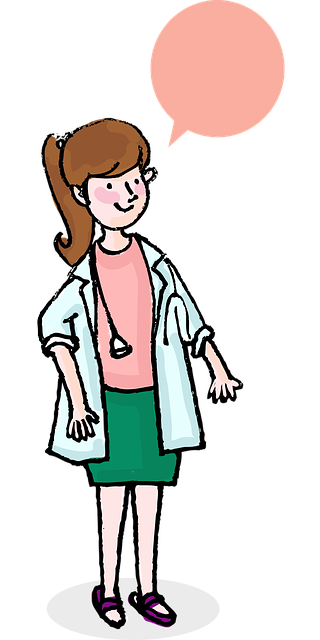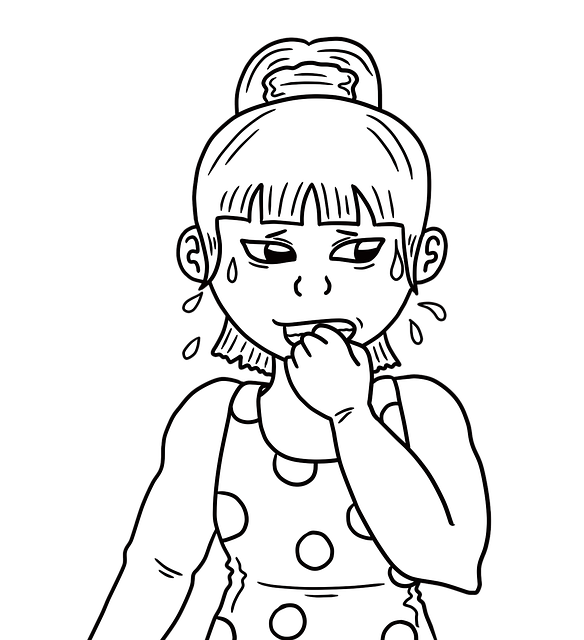Anxiety disorders significantly impact daily life, work performance, and quality of life. Early intervention is crucial through professional help like cognitive-behavioral therapy (CBT) and medication. Effective therapies include CBT, exposure therapy, and mindfulness-based therapies, targeting negative thought patterns, avoidance behaviors, and stress responses. Medication, personalized based on severity and co-morbidities, pairs with psychotherapy for long-term symptom management. Building a strong support network through family, friends, and support groups enhances coping strategies and reduces feelings of isolation. Integrating lifestyle changes like exercise, diet, and sleep with therapy promotes holistic wellness in anxiety treatment.
Anxiety disorders affect millions, yet recognizing and seeking professional help is often challenging. This comprehensive guide delves into various aspects of anxiety treatment, from understanding the impact of conditions like generalized anxiety disorder (GAD) and social anxiety to navigating effective therapy options like cognitive-behavioral therapy (CBT). We explore medication’s role, the power of support networks, and lifestyle changes that complement therapy for a holistic approach to managing anxiety symptoms.
Understanding Anxiety Disorders and Their Impact

Anxiety disorders are a group of mental health conditions characterized by persistent and excessive fear, worry, or anxiety that interfere with daily life. They include generalized anxiety disorder (GAD), panic disorder, social anxiety disorder, and specific phobias, among others. Understanding these disorders is crucial in recognizing their impact on individuals’ lives. People living with anxiety often experience physical symptoms like increased heart rate, sweating, and trembling, as well as cognitive issues such as persistent negative thoughts and difficulty concentrating. This can lead to significant challenges in performing everyday tasks and maintaining social relationships.
The impact of anxiety disorders extends beyond the individual, affecting work performance, academic achievements, and overall quality of life. Early intervention and professional help are essential for effective anxiety treatment. Therapies such as cognitive-behavioral therapy (CBT) have proven highly successful in managing anxiety by teaching individuals coping strategies and challenging negative thought patterns. Additionally, medication can be prescribed to help alleviate symptoms, making it an integral part of comprehensive anxiety treatment plans.
Recognizing When Professional Help is Necessary

Anxiety can be a manageable condition, but when it interferes with daily life and normal functioning, it’s crucial to recognize that professional help is necessary. While self-care strategies like exercise, mindfulness, and support from loved ones can help alleviate mild anxiety symptoms, severe or persistent anxiety may require specialized treatment. If you’re experiencing anxiety that disrupts your work, relationships, sleep, or overall well-being, seeking professional guidance is essential for effective management.
There are several signs indicating that it’s time to consider anxiety treatment. These include feeling constantly worried or fearful, avoiding situations due to fear or anxiety, difficulty concentrating, insomnia, restlessness, and physical symptoms like rapid heartbeat or shortness of breath. A qualified mental health professional can provide a diagnosis, offer tailored therapy options such as cognitive-behavioral therapy (CBT), and, if needed, prescribe medications to help manage anxiety symptoms.
Types of Effective Therapy for Anxiety

When it comes to anxiety treatment, several effective therapy options are available that can help individuals manage and overcome their symptoms. Cognitive Behavioral Therapy (CBT) is a widely recognized and successful approach, focusing on identifying and changing negative thought patterns and behaviors contributing to anxiety. This form of therapy equips people with practical tools to cope with anxious thoughts and situations.
Another powerful method is Exposure Therapy, which involves gradual exposure to feared stimuli in a safe environment. By confronting anxiety-provoking scenarios, individuals can learn to manage their responses and reduce avoidance behaviors. Additionally, Mindfulness-Based Therapies have gained popularity for their ability to promote present-moment awareness and accept anxious feelings without judgment. These therapeutic techniques offer holistic support, helping individuals develop resilience and improve overall well-being.
The Role of Medication in Anxiety Treatment

Medication plays a significant role in anxiety treatment, offering a much-needed support system for individuals grappling with anxiety disorders. Often prescribed by mental health professionals, anti-anxiety medications help to balance brain chemistry and alleviate symptoms such as excessive worry, panic attacks, and insomnia. These drugs work by targeting specific neurotransmitters like serotonin, norepinephrine, and gamma-aminobutyric acid (GABA), which are key players in regulating mood and reducing stress responses.
The choice of medication is tailored to the individual, taking into account the severity of symptoms, personal history, and any existing co-morbidities. While medications can be highly effective, they are typically used in conjunction with psychotherapy for optimal anxiety treatment results. This combination approach addresses both the underlying causes and the symptoms of anxiety, fostering long-term management and improved quality of life.
Building a Supportive Network for Recovery

Building a strong support network is an integral part of managing and overcoming anxiety symptoms. This involves surrounding yourself with understanding and empathetic individuals who can provide emotional support, encouragement, and practical help during your recovery journey. Friends and family members who are willing to listen, offer reassurance, and be present during moments of distress can significantly contribute to your well-being. Consider reaching out to loved ones and explaining your experiences; they can become your reliable allies in managing anxiety.
Additionally, joining support groups or communities focused on anxiety treatment can be immensely beneficial. Sharing experiences with others facing similar challenges creates a sense of belonging and understanding. These networks often provide valuable insights, coping strategies, and a safe space to express fears and anxieties without judgment. Utilizing online forums and social media groups dedicated to mental health awareness is another way to connect with a global community, offering both comfort and practical advice for navigating anxiety-related issues.
Lifestyle Changes to Complement Anxiety Therapy

Anxiety therapy isn’t just about talking through your feelings; it’s a holistic process that benefits from lifestyle changes to complement the treatment. Incorporating regular physical activity, such as yoga or walking, can significantly reduce anxiety levels by releasing endorphins and promoting relaxation. A balanced diet rich in vitamins and minerals also plays a crucial role, ensuring your body has the tools to combat stress effectively. Additionally, maintaining a consistent sleep schedule helps regulate mood and energy levels, making it easier to manage anxious thoughts during the day.
Beyond physical aspects, mindfulness practices like meditation or deep breathing exercises can help navigate stressful situations more calmly. Reducing exposure to stressors, setting realistic goals, and practicing positive self-talk are equally effective strategies. These lifestyle adjustments work synergistically with anxiety treatment, enhancing overall well-being and empowering individuals to better manage their symptoms in the long term.
